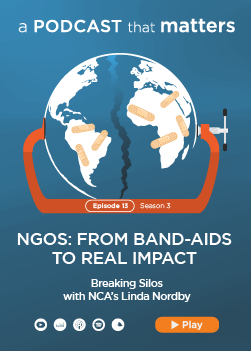Print

Combating discrimination in the classroom – a guide for teachers: ProfsAgainstDiscrimination
Details
Locations:Romania
Start Date:Dec 1, 2020
End Date:Nov 30, 2022
Contract value: EUR 269,559
Sectors: Education, Training & Capacity Building, Gender & Human Rights, Research & Innovation, Statistics and data analysis
Description
Programme(s): Rights, Equality and Citizenship Programme-REC Programme 2014-2020
Topic(s): REC-RDIS-DISC-AG-2020
Type of action: REC Action Grant
Project ID: 963306
Objective
Although Romania has transposed the European Equality directive into national law, implementation and enforcement at the grassroots level is still very lacking. One of the most important battlefields of antidiscrimination efforts is the classroom: although segregation of Roma children is officially illegal, strong racial prejudice on the part of teachers, parents and even other pupils remains. In this context, the project aims to (1) increase the awareness and capacity of 200 teachers regarding measures to identify, combat and report instances of discrimination in the classroom through national-level antidiscrimination training sessions and a Practical Guide to Combating Discrimination in the Classroom which will be distributed at national-level; (2) increase the level of available data and statistics regarding the knowledge and application of the extant anti-discrimination tools and legislation in the the classroom by providing an extensive set of national statistics on the extent of discrimination at the level of teachers, parents and school inspectorates; (3) analyze, monitor and report upon the level of grassroots implementation of extant anti-discrimination legislation (both national and European) through a legislative analysis and three national-level surveys which will be compiled into a Study which will be distributed to 350 representatives from the public authorities, teachers, civil society and other interested stakeholders; and (4) address the lacunae in the legislation through a series of concrete and targeted recommendations assembled in a White Paper. The project has the following planned activities: (1) three national-level surveys targeting representatives of county school inspectorates, teachers (middle-and high-school) and school counselors, and parents of schoolchildren; (2) a Study regarding Perceptions of the effectiveness of the anti-discrimination legislation in the classroom which will include an analysis of the surveys and extant legislation along with a series of concrete recommendations addressing stakeholders in education regarding measures to improve the current situation from the point of view of legislation, procedures, awareness activities etc.;(3)10 training sessions with 200 teachers and school counselors from the national level with a curricula which educates on the current antidiscrimination legislation and procedures, practical methods derived from case-studies to identify, monitor, report and handle cases of abuse and practical exercises which can be done by teachers in order to incorporate antidiscrimination measures in the classroom; (4) a Practical Guide to implementing antidiscrimination measures in the classroom, addressed to teachers at a national level; and (5) a White Paper which will contain a series of recommendations regarding the improvement of anti-discrimination legislation, the educational curriculum and advocacy measures and strategies which could be implement in order to address the outstanding issues. The results of both the survey and the study will be three-fold: increased knowledge of the extent of the problem on the part of the public authorities who have powers in the field of combating discrimination, building the capacity of educational system to manage cases of discrimination and an increased awareness of the issue on the part of three target groups: teachers and school counselors, parents and school inspectorates. The results of the training will be an increase in the capacity of the teachers and school counselors to identify, report and combat instances of discrimination in the classroom. It will also contribute to an overall decrease in the number of reported cases of discrimination-based abuse in schools but also to a more efficient and compassionate (in the handling and protection of the victim’s rights) approach to addressing reported cases of abuse. The Practical Guide which will be distributed nationally in hard copies will contribute to increasing the capacity of teachers who were not able to participate in the trainings. Special care will be taken to distribute the Practical Guide to schools in rural communities who do not have as much access to training and information as the schools in the cities. In this manner 410 teachers and school counselors throughout the country will be able to access practical and accessible information regarding extant anti-discrimination tools and how they can be applied at classroom level. The Guide will also be available electronically on the websites of both project partners, but the printed versions will ensure that the information reaches targeted beneficiaries. Copies of the guides will also be sent to the Ministry of Education so that they have easy access to this deliverable in case they would like to replicate the manual at a national level using state funds. The research conducted as part of the project, including the statistics gathered and the implementation analysis, will improve the capacity of the Project Leader, the National Council for Combating Discrimination (CNCD), to evaluate its resources in combating discrimination and to offer targeted assistance to where it is most needed. Additionally, it will increase the capacity of the CNCD to communicate results within the European Network of Equality Bodies in order to exchange examples of best practices on strategies concerning the combating of discrimination at school-level. Finally, the implementation of the project will increase the capacity of the Institute for Public Policy to elaborate more targeted public policy proposals and advocacy campaigns which would contribute to an improvement in antidiscrimination legislation and an increase in public awareness.


